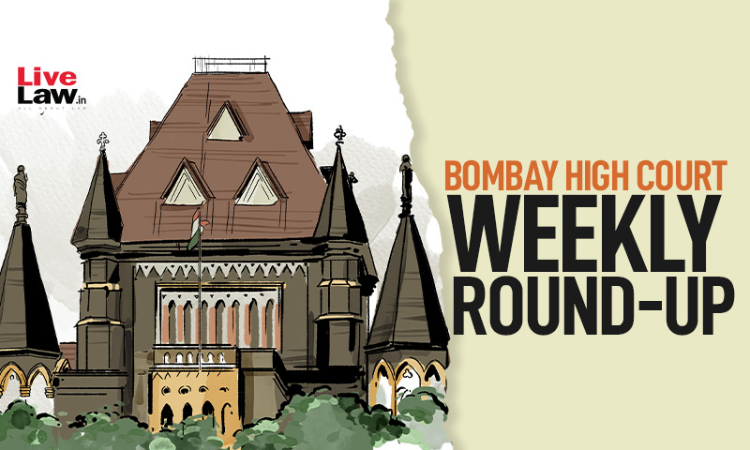Bombay High Court Weekly Roundup: March 21 To March 27, 2022
Sharmeen Hakim
28 March 2022 9:36 AM IST

Next Story
28 March 2022 9:36 AM IST
Nominal Index Dr. Sonal Pratapsingh Vahanwala v. Deputy District Collector, Dharavi The State of Maharashtra v Shadab Tabarak Khan Manojkumar Omprakash Dalmia vs Omprakash Dalmia and Others Shrikrupa Stone Crusher v State of Maharashtra and ors. Invesco Developing Markets Fund vs Zee Entertainment Enterprises Limited Poorti Rent a Car and Logistics Pvt. Ltd. &...
